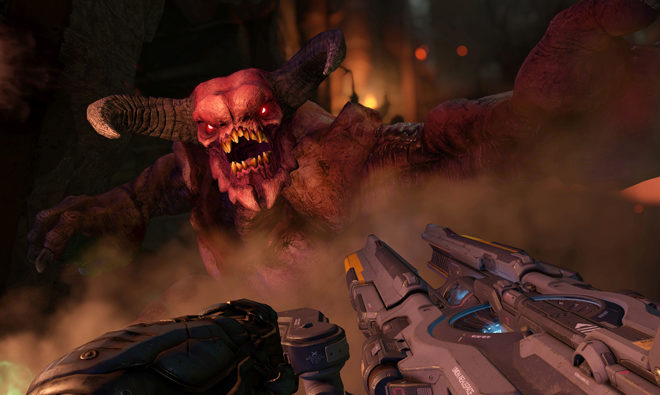Cognition Dissemination: Bethesda’s Relationship with the Press is Doomed

Watching from the sidelines, it appeared Bethesda had a comfortable relationship with the enthusiast gaming press in the last few years. The company always sent them preview and review copies well before each of their games released, and embargos were lifted for reviews well before consumers could definitively make up their minds and purchase them. The company’s record for quality was also high, evinced through titles like Fallout 3, The Elder Scrolls IV: Oblivion, and Dishonored.
In fact, you could argue the press has been too cozy with Bethesda, particularly when they ignored issues that plagued some of their open world RPGs at launch. They were released in bug-ridden states, evidence that they didn’t provide enough quality assurance testing before giving the “OK” — if they provided any at all.
The lack of press oversight was most egregious with the lack of reporting on severe problems which plagued the PS3 versions of Fallout 3, Fallout: New Vegas, and The Elder Scrolls V: Skyrim. Each title became nearly unplayable due to memory leakage issues after they were played for a while. This occurred due to the lack of unified ram within the PS3 hardware, meaning this issue was too complex to completely fix through mere patches. But the press only lightly criticized them despite fury from the gaming audience, and hardware manufacturers let them skate by with no public penalty. It was one of the most disappointing incidents from the last console generation era.

Yet despite that, the relationship between Bethesda and the press is now waning. The first signs of this manifested when copies of Doom were sent to the press later than usual, to ensure that none could have the game finished and reviewed before its release date in May. The tactic is typically used by publishers when games don’t turn out well, and fear that negative reviews will stop consumers from purchasing it. But you can observe a slew of Doom reviews to see that wasn’t the case here, and members of the gaming audience called it one of the best games released this year. Its reception was a stark contrast to the reception from other games that weren’t sent to the press in time, like No Man’s Sky and especially Mafia 3.
Now, it’s become apparent that Doom was a test run for Bethesda’s larger plan. They came out and confirmed that they’re abandoning the practice of sending review copies to the press well before its release date altogether. They followed through on this by not sending out copies of The Elder Scrolls V: Skyrim — Special Edition early, which explains why there aren’t many reviews despite it releasing Friday. This will continue with Dishonored 2, which arrives on November 11th. It’s not that they’re afraid of bad publicity, as their games have an established reputation for being quality. They simply realized they don’t need the press, and sadly, they’re right.
Bethesda realized that all publishers need are good marketing campaigns to generate excitement for the gaming audience to preorder and purchase AAA titles, as shown with Doom’s superlative sales. This also worked splendidly for the aforementioned No Man’s Sky, despite it having a share of other problems. There are also plenty of comments from the gaming audience saying they’re fine with this practice, though it could be problematic for them down the line. This means there will be less checks and balances on their titles before release, and chances of reporting about bugs and errors in their RPGs before release is nearly nonexistent. The quality of some games they publish could also slip down the line, and players won’t notice until many of them purchase it. It’s also bad for critics because gamers often don’t read late reviews in high numbers, giving them less revenue.

This move will also give YouTubers a slight advantage, especially if some receive copies earlier. Those who make these videos are often thankful they can preview and review games before release, as they can monetize videos through how many hits they receive for good cash. The issue is that some tend to be cozier with publishers than the press, and are even less likely to be critical. This isn’t to say that all YouTubers behave this way, but it happens too often to ignore. And this is before delving into known ethical breaches, like how Warner Bros. paid some to give Shadow of Mordor positive reviews.
The only silver lining this will have is how critics tend to be harsher on games and companies when they play games with them like this. I went over how the press let Bethesda skate by with their PS3 games above, but a move like this could lower the chance of that happening. That won’t offset the negatives both critics and gamers will endure, but it will make for some good and more honest reading.
The frightening prospect is how this move will undoubtedly work for Bethesda, so expect other AAA publishers to follow suit — regardless of their quality standards. It’s already been tough for game writers in the last decade due to fluctuating market conditions, and a rare public display of contempt from a publisher is the last thing they needed. They’ll have to cross their fingers and hope that enough games still need promotion from game writers to sell. Otherwise, don’t be surprised if you see more layoffs in the future.





